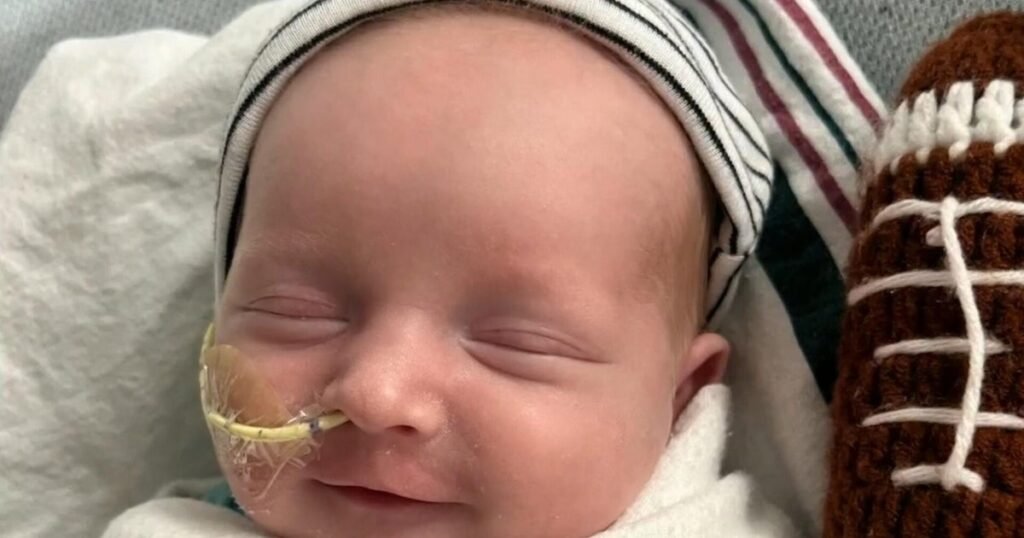Philadelphia — Soon after KJ Muldoon was born in the summer of 2024, he was diagnosed with a rare genetic disorder that is fatal for about half the infants who are born with it.
Until now, the only effective long-term treatment for the rare metabolic disease known as severe Carbamoyl Phosphate Synthetase 1 deficiency, or CPS1, had been a liver transplant.
Instead, doctors at the Children’s Hospital of Philadelphia told KJ’s family they could try something never done before. They would use a technology known as CRISPR, a personalized gene-editing therapy, to find the one uniquely mutated gene out of 20,000 in his little body, and fix it.
KJ subsequently received three infusions of the experimental therapy to his liver earlier this year under treatment by a medical team at the hospital and Penn Medicine.
He became the first known patient in the world to be treated using CRISPR personalized just for him, according to a news release from Penn Medicine. His case was published Thursday in the New England Journal of Medicine.
He has so far shown no serious side effects to the treatment, Penn Medicine said. He is still in the hospital, gaining weight and thriving. He will turn 1 in August.
“While KJ will need to be monitored carefully for the rest of his life, our initial findings are quite promising,” Dr. Rebecca Ahrens-Nicklas, director of the Gene Therapy for Inherited Metabolic Disorders Frontier Program at Children’s Hospital of Philadelphia, said in a statement.
“Now, when I get to hold him, and he’s laughing and jumping around, that is a very heartwarming, because I didn’t know if that was going to happen, at one point,” his mother, Nicole Muldoon, told CBS News in an interview over Zoom Thursday.
According to Penn Medicine, CRISPR — which stands for clustered regularly interspaced short palindromic repeats — can “precisely correct disease-causing variants in the human genome.” The researchers cautioned that although personalized CRISPR treatment is in its early days, the technology could potentially one day serve to address other rare genetic disorders.
“This is mind-blowing and we should all be very, very excited,” said Dr. Brian Brown, a bioengineer and immunologist who serves as director of the Icahn Genomics Institute at the Icahn School of Medicine at Mount Sinai in New York City.
“We are at day one of, you know, the future of how we are going to treat different diseases,” Brown said. “…We may have, potentially, treatments for horrible diseases children may be born with.”

